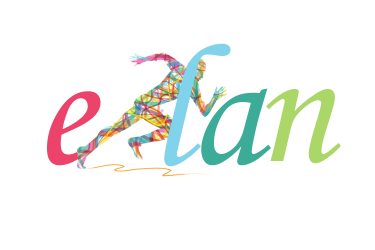Why we don’t do it much…
Some say “don’t do it”, others say “do it in moderation”, and I say, do it as often as the learners need it. Note that I’m not talking about error correction in a General English class, I’m only talking about error correction in pronunciation courses where learners do often expect to be corrected. Many teachers abstain from correcting the learners’ mistakes because:
1-They believe it destroys the learners’ confidence in their spoken English.
2-They are scared to do it due to their lack of skills and knowledge to carry the learner through the problem-solving process. They’re afraid that if they point out a certain error to the learner, he or she may want to know more and start seeking answers that they do not have.
Teachers are more confident correcting the students’ grammar mistakes as, when faced with a “curly one”, they can always somehow weasel their way out of it and simply tell the students “that’s the rule”, another way of saying “I don’t know the answer but I know it’s right because that’s how I have been saying it since I was born”. Besides, native speakers of English do learn about the structure of the language in school, but never about the sound system of the English language. Why would they? It’s a skill they acquire as infants, a skill they perform very well, so well that they are not even conscious of it, not that they ever need to…until they decide to become ESL (or EFL) teachers.
Take a look at the Phonetic instructions guide for consonants and vowels HERE
What effective error correction takes…
 Now, in order to correct the students’ pronunciation errors, you have to possess a good knowledge of phonetics and phonology. You have to know how the sounds are formed and produced, how the speech organs behave and how we utilize the voice pitch to convey meanings and feelings. Not only do you need to be quite knowledgeable in the area of speech production but also in the area of speech perception. In speech perception, we focus on how we (in this case foreign language learners) perceive or hear the sounds, which basically affect the manner in which you produce these sounds. The interrelationship between speech production and speech perception has been extensively investigated by scholars, but that’s beyond the scope of this article. The point I am trying to make is that in order for you to, say, correct consonant /r/, you have to understand how the students hear it as they do and why. Once you determine the cause of error, which is often attributed to the influence of the students’ L1, then you’re able to diagnose and instruct accurately and effectively.
Now, in order to correct the students’ pronunciation errors, you have to possess a good knowledge of phonetics and phonology. You have to know how the sounds are formed and produced, how the speech organs behave and how we utilize the voice pitch to convey meanings and feelings. Not only do you need to be quite knowledgeable in the area of speech production but also in the area of speech perception. In speech perception, we focus on how we (in this case foreign language learners) perceive or hear the sounds, which basically affect the manner in which you produce these sounds. The interrelationship between speech production and speech perception has been extensively investigated by scholars, but that’s beyond the scope of this article. The point I am trying to make is that in order for you to, say, correct consonant /r/, you have to understand how the students hear it as they do and why. Once you determine the cause of error, which is often attributed to the influence of the students’ L1, then you’re able to diagnose and instruct accurately and effectively.
Read the How To Sound Like A Native Speaker article HERE
Why it’s worth it…
I am writing about this particular topic today because I truly believe the skill of error correction is enormously valuable for ESL teachers and when properly applied, it does wonders not only to the students’ speaking skills, as always presumed, but also to their listening skills, which often lead to greater vocabulary retention. Simply put, you are more likely to recall the sounds you hear (correctly).
Needless to say, there are various error correction techniques, which I’m not going to discuss in this article, but I can tell you that no other teacher has ever been more blunt and brutal in his error correction process than I (in my case, it’s all part of the technique and not a product of anger or frustration. I always make sure the students understand that very well from day one) , and contrary to the beliefs and assumptions of many ESL teachers and trainers, that has never had a negative impact on the students’ confidence or fluency, on the contrary, it has helped grow their confidence dramatically. My students know that I do it because I care, they know I’m passionate about their learning the language and that I take my job very seriously, which means I expect to see results, I work very hard with them and I expect them to work hard with me.
Many undermine the importance of clear pronunciation in confidence building and learners ought to understand that the only way to achieve an advanced level in their oral communication is by building a new muscle memory and eventually forming new speaking habits and that, in my opinion, requires intensive error correction.
What error correction techniques do you use? Has that worked for you or your students? I am only referring to oral error correction here.

Leave a Reply